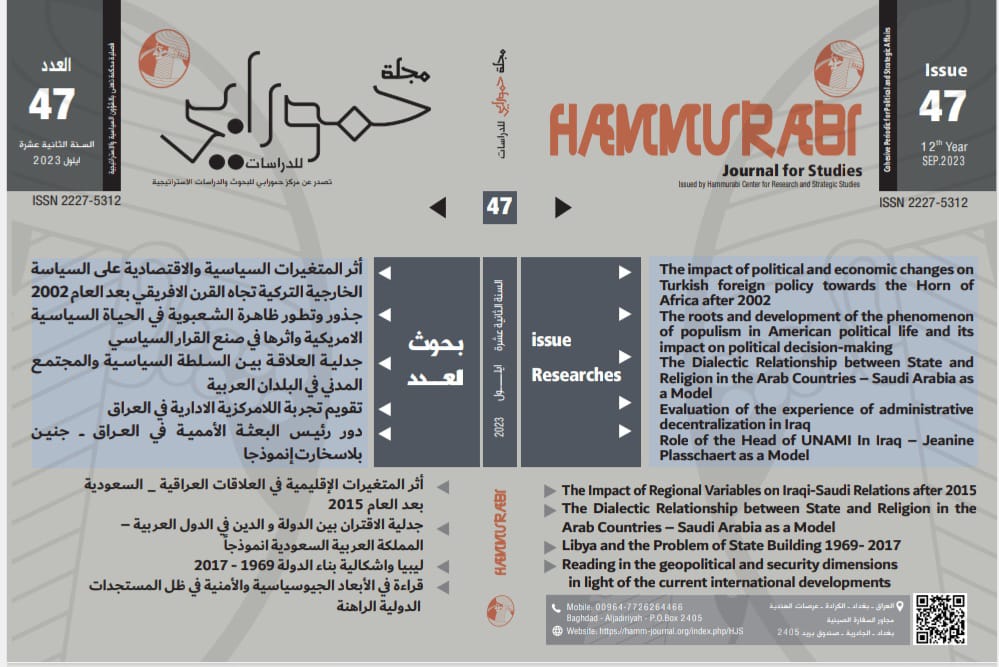Libya and the Problem of State Building 1969-2017
Abstract
The concept of state building in general means the process of building state institutions and apparatuses on legal frameworks emanating from reality, to carry out the evolutionary functions of the system from penetration, integration, loyalty, commitment, participation and distribution, and bridging the gap between the ruler and the ruled, leading to achieving political stability. Libya, after the fall of Gaddafi, witnessed essential problem which is how to bridge the gap between the people and the new government that was formed after the toppling of Muammar Gaddafi’s regime, which relied more on the tribe than on state institutions in managing his regime. This led to instability of the political situation in Libya due to the large number of tribal conflicts in the region, which caused the division of Libya into two camps, eastern and western. Despite the success of the transitional government in managing the country's conditions, but it failed to establish an institutional system capable of managing state affairs, thus constituted an obstacle to building an institutional system due to the nature of the country's tribal system.












